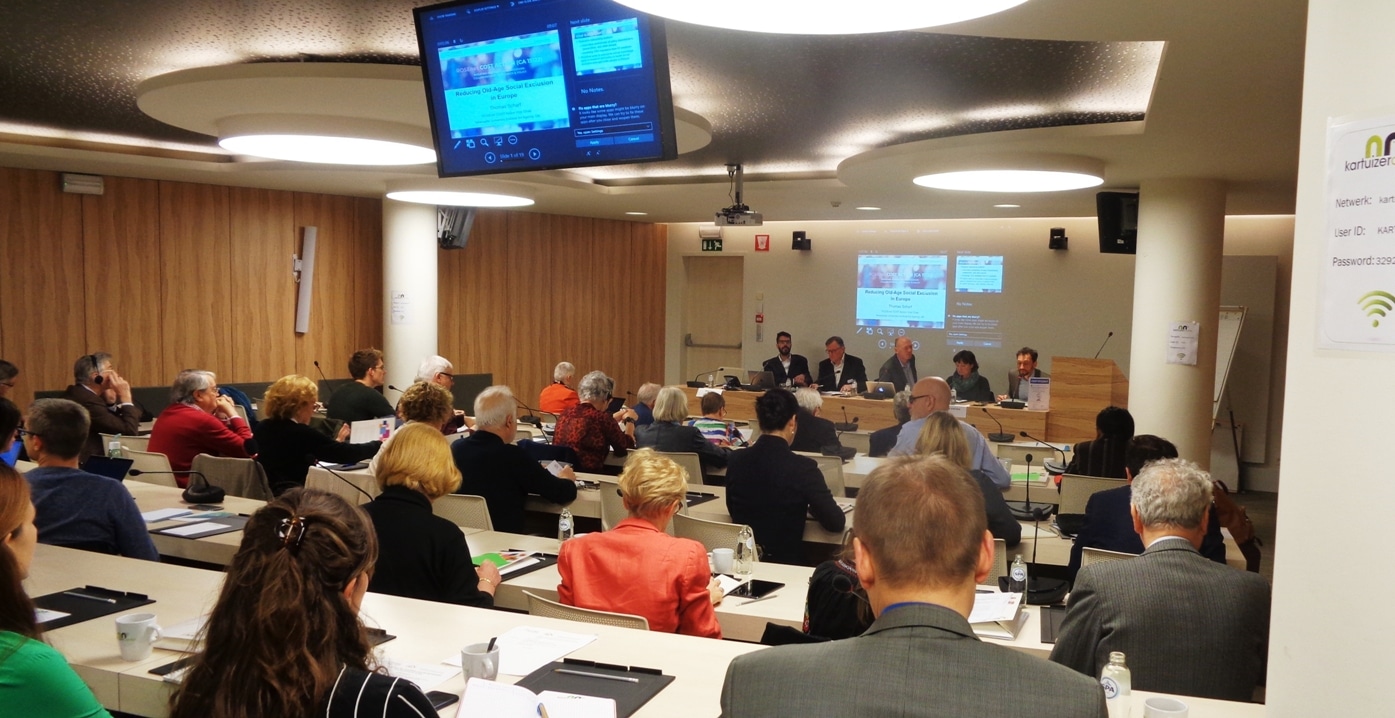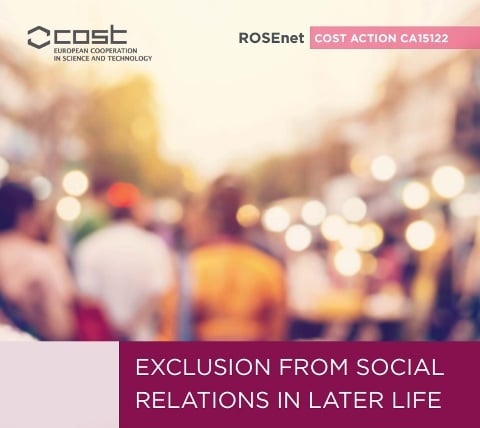
Demographic ageing brings overall socio-economic challenges, such as adequacy and sustainability of social protection systems or the adaptation of working environments to an ageing workforce, as well as some specific societal issues, among which old-age loneliness and social isolation.
The ambition of our joint seminar held together with ROSEnet Cost Action on Reducing Old-Age Exclusion on 11 April 2019 was to connect findings from the research on old-age loneliness/social isolation to policy planning and actions to be taken at all levels to tackle the issue. Gathering speakers from policy, the scientific community and civil society, the seminar outlined:
- the state of the art of research on loneliness/social isolation,
- local perspectives,
- the role of technology to reduce social exclusion and loneliness,
- the responsibilities of different levels of policy making to address the phenomenon.
Exploring risk factors
The discussion focused on various factors increasing someone’s risk of experiencing, loneliness and/or exclusion from social relations when ageing. These include gender, household circumstances and marital status, physical and mental health, low socio-economic status, ethnicity or sexuality. By considering these factors, and the interaction between them, older people and their organisations, researchers, practitioners, and policy makers can build a better understanding of who might experience loneliness or be socially isolated and, therefore, be likely to benefit from support.
Development of new technologies was largely discussed, investigating on its risks and opportunities for social inclusion in old age. Technology must help people to navigate in local environments and to meet their various needs. To do so, technological innovation must be meaningful for all age and population groups, based on the principle of independent access.
Enhancing cooperation
Considering the complexity of the causes of loneliness and isolation in later life, the seminar pointed out the urgency to further raise public awareness about the phenomenon and attempted to identify some concrete opportunities for cooperation between all relevant actors to effectively prevent loneliness and social isolation in old age. The following recommendations were formulated as a way forward:
- Recognise and address adequately the differences between social and emotional loneliness, on the one hand and the social isolation and exclusion on the other hand;
- Propose a structural and multi-level approach to address various risk factors of loneliness and social isolation i.e. single and disconnected interventions are not enough;
- Involve isolated persons when defining a tailor-made support, so that they have ownership of the process to which they belong and contribute actively;
- Introduce proofing against loneliness to enhance the overall coherence of policy making, its actions and interventions e.g. impact of deinstitutionalisation toward community-based care or dematerialisation of local services;
- Take a life-cycle approach to assess the causes and implications of old-age exclusion across the whole life span;
- Ensure synergies between institutional, professional and volunarty actors and all levels of intervention – successful strategies to fight old-age loneliness require a coordinated and forward-looking approach.
Pledge to EU and national decision-makers
The seminar concluded with a pledge to policy decision makers at both national and European level to address urgently old-age loneliness and social isolation as a policy and societal challenge. The upcoming EU institutional changes provided an opportunity to rethink priorities for social inclusion policy and the respective roles of different actors. The genuine implementation of the Europe Pillar of Social Rights will play a key role in addressing some of the risk factors of loneliness and social isolation in later life.
For more information, please see the presentations from the conference:
- Framing Social Exclusion in Later Life
Prof Thomas Scharf, Newcastle University Institute for Ageing, Newcastle University - State-of-the-art in research on loneliness and social isolation
Prof Marja Aartsen, Norwegian Social Research, Oslo Metropolitan University - Grass-roots engagement
Jean-Pierre Bultez, les petits frères des Pauvres, France - Can technology help combat loneliness and social isolation?
Prof Niall Hayes, Project Coordinator of Mobile Age Project - Local perspective – Fighting loneliness and social isolation in Flanders
Iris de Mol, Senior Advisor on older people, Association of Flemish Cities and Municipalities (VVSG) - National approach – UK Campaign to End Loneliness
Robin Hewings, Policy and Research Director, Campaign to End Loneliness - What can the EU do to end loneliness and social isolation?
Jiří Švarc, European Commission, Head of Unit, Social Investment Strategy, DG Employment, Social Affairs and Inclusion

For any further information on AGE work on social exclusion and loneliness, you can also contact: Maciej.kucharczyk@age-platform.eu






